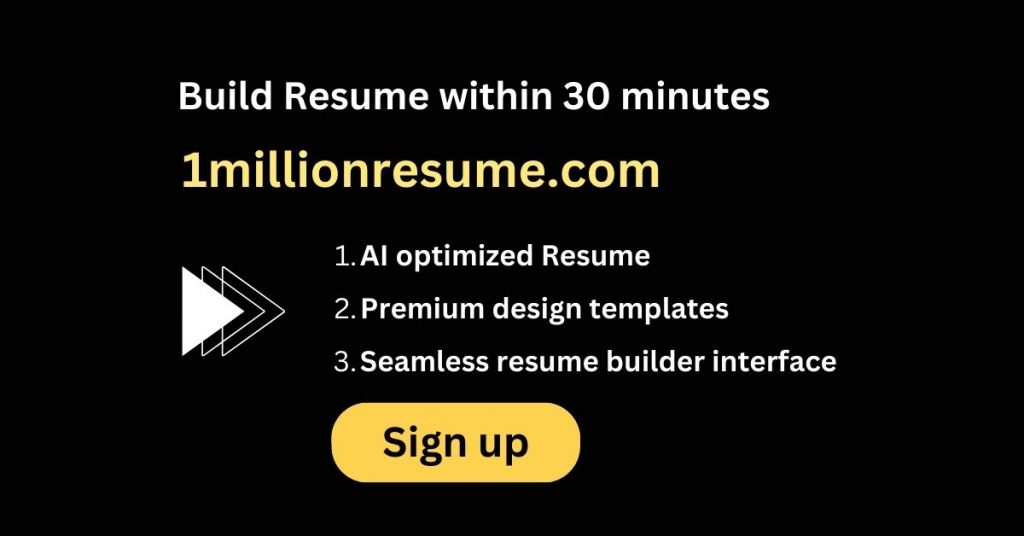Resume Dos and Don’ts: Expert Advice for Job Seekers
Crafting the perfect resume can be a daunting task. With countless advice and guidelines available, it’s essential to know which strategies truly make a difference. Dive into this comprehensive guide on the dos and don’ts of resume writing, backed by expert advice.
Introduction
The resume is often the first impression a potential employer has of you. It’s a reflection of your professional journey, skills, and potential. With the job market becoming increasingly competitive, having a standout resume is more crucial than ever. This article provides expert advice on what to include and what to avoid, ensuring your resume shines.
The Dos of Resume Writing
1. Tailor Your Resume for Each Job Application
- Why: Different roles have different requirements. Customizing your resume ensures you highlight the most relevant skills and experiences.
- Expert Tip: Use keywords from the job description to enhance your resume’s relevancy.
2. Use Action Verbs
- Why: Action verbs convey a proactive attitude and showcase your contributions.
- Expert Tip: Use verbs like “achieved,” “managed,” and “designed” to depict your roles effectively.
3. Quantify Achievements
- Why: Numbers provide context and scale to your accomplishments.
- Expert Tip: Instead of saying “increased sales,” specify “increased sales by 20% in the first quarter.”
4. Maintain a Professional Tone and Language
- Why: A resume is a formal document. Keeping it professional ensures you’re taken seriously.
- Expert Tip: Avoid jargon unless it’s industry-specific and relevant.
5. Keep It Concise
- Why: Hiring managers often skim through resumes. Being concise ensures your key points are noticed.
- Expert Tip: Aim for a 1-2 page resume, depending on your experience.
6. Include Relevant Keywords
- Why: Many companies use Applicant Tracking Systems (ATS) that screen resumes based on keywords.
- Expert Tip: Review the job description and company website to identify potential keywords.
The Don’ts of Resume Writing
1. Avoid Using an Unprofessional Email Address
- Why: It can make you seem unprofessional or immature.
- Expert Tip: Stick to a simple combination of your first and last name.
2. Don’t Include Personal Information
- Why: Information like age, marital status, or religion is irrelevant and can lead to biases.
- Expert Tip: Focus on your professional achievements and skills.
3. Refrain from Using a One-Size-Fits-All Approach
- Why: Generic resumes often miss the mark.
- Expert Tip: Take the time to tailor your resume for each application.
4. Avoid Long Paragraphs
- Why: They’re hard to skim and can cause key details to be overlooked.
- Expert Tip: Use bullet points to organize information.
5. Don’t Use Fancy Fonts or Colors
- Why: They can be distracting and may not display correctly on all screens.
- Expert Tip: Stick to classic fonts like Arial or Times New Roman in standard sizes.
Expert Sections to Include
1. Summary or Objective: A brief overview of your professional goals and what you bring to the table. 2. Experience: List your relevant roles in reverse chronological order. 3. Skills: Highlight specific skills relevant to the job. 4. Education: Detail your academic background. 5. Certifications: Any additional qualifications that set you apart.
Common Resume Myths Debunked
1. “Your resume should only be one page.”
- While conciseness is essential, it’s more important to ensure all relevant information is included.
2. “You should include all your work experience.”
- Only include roles that are relevant to the job you’re applying for.
3. “Fancy designs stand out.”
- While they might catch the eye, they can also be distracting and may not always be ATS-friendly.
Stop Worrying and Start Creating Resume

LinedIn Page – https://www.linkedin.com/company/1millionresume
Youtube – https://www.youtube.com/@parvatdharainnovations?sub_confirmation=1
Conclusion
Crafting a standout resume is a balance of showcasing your achievements, skills, and potential while adhering to industry norms and expectations. By following the dos and avoiding the don’ts, you can create a resume that not only passes the ATS test but also impresses hiring managers. Remember, your resume is a reflection of your professional self. Make it count.
FAQs (Frequently Asked Questions)
Q: How often should I update my resume?
- Regularly, even if you’re not job hunting. It ensures your resume is always ready and up-to-date.
Q: Should I include references on my resume?
- It’s generally advised to have them ready but only provide them upon request.
Q: Can I use a template for my resume?
- Yes, but ensure it’s ATS-friendly and relevant to your industry.
Q: How can I make my resume stand out?
- Tailor it for each job, quantify achievements, and ensure it’s error-free.
Q: Is a cover letter still necessary?
- While not always required, a well-crafted cover letter can provide context to your resume and showcase your passion.
Author – Rudra Saxena
Rudra Saxena is an emerging resume and content writer with a growing passion for helping individuals communicate their professional stories with clarity and confidence. With a strong foundation in writing, formatting, and presentation, Rudra focuses on creating resumes and content that highlight skills, achievements, and individuality.
Dedicated to continuous learning, Rudra stays updated with the latest trends in resume writing, digital content creation, and career development. He aims to build a career centered on effective communication and professional storytelling, helping job seekers and professionals make a strong impression in their fields.
Connect on LinkedIn
Reviewer – Kunal Saxena
Kunal is a seasoned Technical Resume Writer with over 13 years of experience working with startups, mid-sized firms, and top global companies like Goldman Sachs and EY. He brings deep domain expertise across tech, education, insurance, e-commerce, and investment banking.
He has helped hundreds of professionals from top firms—including Apple, Meta, Google, Adobe, and Amazon — land interviews and advance their careers globally. His approach blends real-world hiring insight with high-impact resume strategy.
Kunal is an active member of Career Thought Leaders and the Resume Writing Academy, staying current with global resume trends and recruiter expectations.
Connect on LinkedIn
Amit got 2 Offers with our resume builder

My experience was truly outstanding, I got 3-5 interview calls and 2 job offers. The resume wasn't just focused on my current job - it captured my consulting, technical and leadership skills as well. Plus this was much more affordable
Data Engineer - Deloitte



